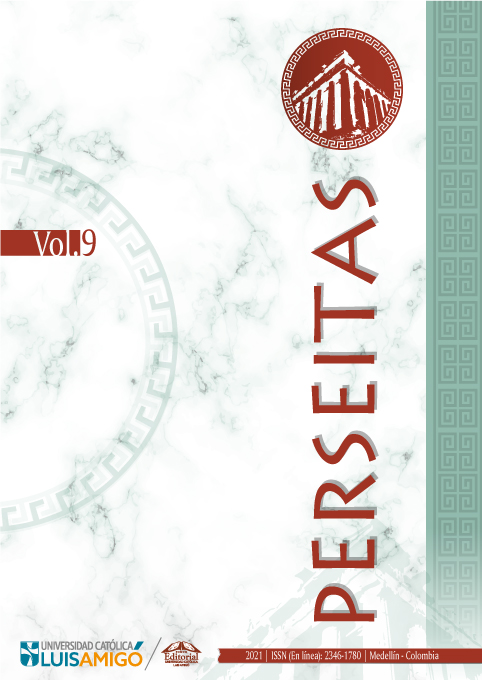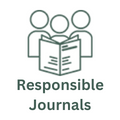Poshumanist nightmares: Frankenstein as a case study
DOI:
https://doi.org/10.21501/23461780.4086Keywords:
Poshumanism, Narrative critique, Anthropological analysis, Novel Frankenstein.Abstract
The number of texts published on poshumanism has been growing in recent years. Likewise, the reception of the phenomenon has become increasingly nuanced and the analyses diverse. Nor has there been a lack of metaphors used to bring the somewhat new and unfamiliar phenomenon closer to more familiar ones. Among these metaphors, one of the first and, in our opinion, most interesting, is that of Frankenstein. Notwithstanding its wide use, we consider that a more detailed analysis of the anthropological motives and narrative strategies involved in the use of this metaphor as a critique of poshumanism is lacking. The article seeks to develop such an analysis.
Downloads
References
Agrippae ab Nettesheym, H. C. (1533). De occulta Philosophia, libri tres. Coloniensis.
Bahar, S. (2002). Mary Wollstonecraft’s Social and Aesthetic Philosophy: An Eve to Please Me. Palgrave Macmillan.
Braidotti, R. (2015). Lo posthumano. Gedisa. Chao, S-L. (2010). Education as a Pharmakon in Mary Shelley’s Frankenstein. The Explicator, (68), 223-226.
Clair, W. (2000). The Impact of Frankenstein. En B. T. Bennett, & S. Curran (Eds.), Mary Shelley in Her Times (pp. 38-63). John Hopkins University Press.
Cline, E. (2011). Ready Player One. Broadway Books.
Cortez, M. (2008). Embodied Souls, Ensouled Bodies. T. & T. Clark.
de Chasseboeuf, C. F. (1978). Las ruinas de Palmira (J. Ribera, Trad.). Petronio.
(Obra publicada originalmente en 1791).
Harari, Y. N. (2018). De animales a dioses: breve historia de la humanidad. Debate.
Hernández Valencia, J. (2019). ¿Vinum novum in utres novos? El posthumanismo y la ideología de los androides que sueñan con ovejas eléctricas. En J. D. Cifuentes Yarce, & J. Carvajal Godoy (Eds.), Humanismo y cultura ciudadana (pp. 169-193). Editorial UPB.
Klimkiewicz, L. F. (2015). Sigmund Freud, Das Unheimliche. Manuscrito inédito. Edición Bilingüe. Mármol Izquierdo.
Klimkiewicz, L. F. (2018). Das Unheimliche y el más allá del principio de placer Revista Litura, (1), 28-31.
Lehrich, C. I. (2003). The Language of Demons and Angels: Cornelius Agrippa’s Occult Philosophy (Brill’s Studies in Intellectual History 119). Brill.
Levine, G. (1979). The Ambiguous Heritage of Frankenstein. En G. Levine, & U.C. Knoepflmacher (Eds.), The Endurance of Frankenstein: essays on Mary Shelley’s novel (pp. 3-30). University of California Press.
MacDonald, D. L., & Scherf, K. (Eds.). (1999). Frankenstein; or the Modern Prometheus. Mary Wollstonecraft Shelley (2nd ed.). Broadview Literary Texts. (Original work published in 1818).
Mellor, A. K. (2003). Making a “Monster”: an Introduction to Frankenstein. En E. Schor (Ed.), The Cambridge Companion to Mary Shelley (pp. 9-25). Cambridge University Press.
Mellor, A. K. (2009). Mary Shelley: Her Life, Her Fiction, Her Monsters. Routledge.
Meyers, M. (2000). Mary Wollstonecraft Godwin Shelley: the Female Author between Public and Private Spheres. En B. T. Bennett, & S. Curran (Eds.), Mary Shelley in Her Times (pp. 160-172). John Hopkins Press.
Milton, J. (1966). El paraíso perdido. Espasa. (Obra publicada originalmente en 1667).
Derrida, J. (1997). La diseminación. Editorial Fundamentos.
Doran, R. (2015). The Theory of the Sublime from Longinus to Kant. Cambridge University Press.
Dussel, E. (2012). El dualismo en la antropología de la cristiandad. Editorial Docencia.
Eco, U. (1993). Lector in Fabula: La Cooperación Interpretativa en el Texto Narrativo (3ra ed.). Lumen.
Ellis, K. (1979). Monsters in the Garden: Mary Shelley and the bourgeois family. En G. Levine, & U. C. Knoepflmacher (Eds.), The Endurance of Frankenstein: essays on Mary Shelley’s novel (pp. 123-142). University of California Press.
Galvani, L. (1791). De viribus electricitatis in motu musculari commentarius. Extypographia Instituti Scientiarum.
Goethe, J. W. von. (1945). Las desventuras del joven Werther (M.A. Cassañes, Trad.). Horta. (Obra publicada originalmente en 1774).
Moritz, C. P. (1903). Reisen eines Deutschen in England im Jahr 1782. Behr. Morrison, L., & Stone, S. L. (2003). A Mary Shelley Encyclopedia. Greenwood Press.
Morton, T. (2003). Mary Shelley as a Cultural Critic. En E. Schor (Ed.), The Cambridge Companion to Mary Shelley (pp. 259-273). Cambridge University Press.
Oates, J.C. (2006). Frankenstein’s Fallen Angel. En H. Bloom (Ed.), Mary Shelley’s Frankenstein (pp. 29-41). Chelsea House.
Onfray, M. (2018). Decadencia: vida y muerte de Occidente. Paidós.
Ortega, A. (2016). La imparable marcha de los robots. Alianza Editorial.
Plutarco. (1985). Vidas paralelas. Tomo 1: Teseo y Rómulo, Licurgo y Numa (A.Pérez Jiménez, Trad.). Gredos. (Obra publicada originalmente ca. siglo I).
Rodríguez Valls, F. (2001). La mirada en el espejo: ensayo antropológico sobre Frankenstein de Mary Shelley. Septem Ediciones.
Rodríguez Valls, F. (2017). Orígenes del hombre: la singularidad del ser humano. Biblioteca Nueva.
Rodríguez Valls, F. (2019). Humanismo, antropotécnicas y transhumanismo. Revista Universidad Pontificia Bolivariana, 58(158), 99-115.
Shelley, M. W. (2013). Frankenstein, o el moderno Prometeo. Penguin Clásicos.
Smith, J. M. (1992). A Critical History of “Frankenstein” (1308682). ISFDB. http://www.isfdb.org/cgi-bin/title.cgi?1308682
Žižek, S. (2006). Órganos sin cuerpo: sobre Deleuze y consecuencias. Editorial Pre-textos.
Žižek, S. (2011). En defensa de las causas perdidas. Ediciones Akal.
Published
How to Cite
Issue
Section
License
Copyright (c) 2021 Perseitas

This work is licensed under a Creative Commons Attribution-NonCommercial-NoDerivatives 4.0 International License.
La revista y los textos individuales que en esta se divulgan están protegidos por las leyes de copyright y por los términos y condiciones de la Licencia Creative Commons Atribución-No Comercial-Sin Derivar 4.0 Internacional.
















